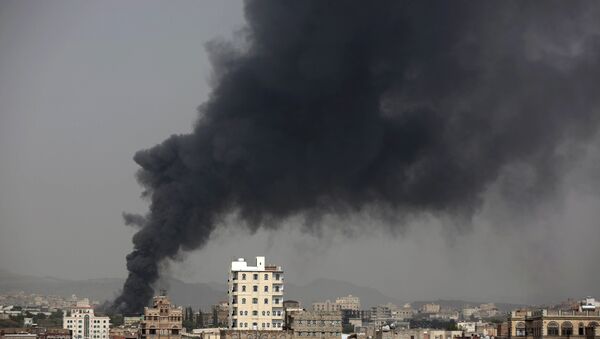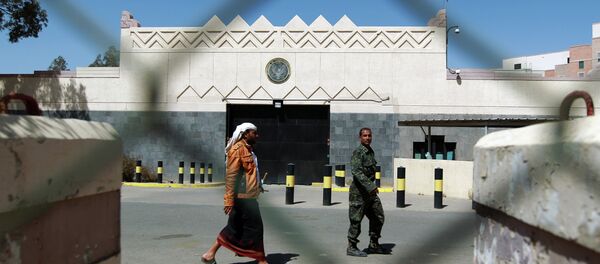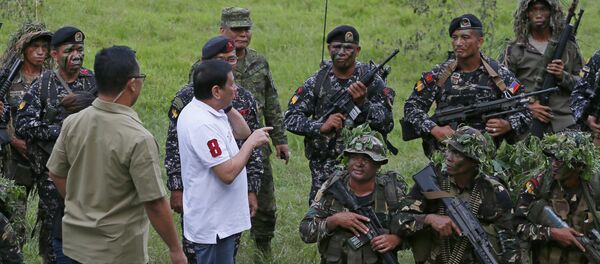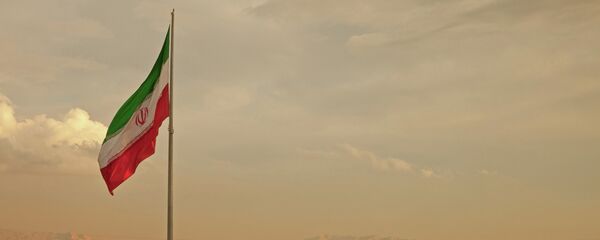MOSCOW (Sputnik) — Yemen has been mired in a civil war since 2015. The war is being fought between the internationally recognized government of President Abd Rabbuh Mansur Hadi and the Shia Houthi movement backed by army units loyal to former President Ali Abdullah Saleh. Since March 2015, the Saudi-led coalition of mostly Persian Gulf countries has been carrying out airstrikes against the Houthis at Hadi's request.
On Thursday, a confidential draft of a UN report alleged that the Saudi-led military coalition conducting airstrikes in Yemen has committed "grave violations" of human rights against children last year, killing 502 and injuring 838. The paper, which has yet to be presented by the UN secretary-general, also urged that Riyadh and its allies be added to a blacklist of countries which are violators of children's rights.
"Arms sales are an indication of a strong relationship that the USA and, for example, the UK have with Saudi Arabia […] Such arms sales are to some extent driven by political motives […] However, do keep in mind that a whole range of other more significant economic reasons explain the strong relationship many states have in the Middle East. Access to oil will generally to be a more important reason to maintain good relations with the Arab states. Again, arms sales may often be more a tool to maintain good relations to facilitate other lucrative economic relations," Pieter Wezeman, a senior researcher with the SIPRI Arms and Military Expenditure Programme, told Sputnik.
He stressed that in addition to these political incentives, arms sales to the warring parties in Yemen are driven by commercial motives, as the country is strategically located where the Red Sea connects to the Indian Ocean, a key waterway for international trade.
"When we talk about Yemen, we talk about its key role in international trade… and a passage of goods and trade between East and West, that is why Yemen is so important for the coalition operated by Saudi Arabia," Imad stressed.
Political motives
Regarding the political motives behind the conflict, Imad suggested that selling arms to the Gulf states is an essential part of Western efforts to contain the influence of Iran in the region, arguing that instability in the region could be a sign of preparations for a bigger conflict that could reconstruct the existing regional order as well as the international trade system.
Pieter Wezeman, in his turn, highlighted that an essential part of the US arms trade in the region could be an effort "to maintain the precarious relations between the Arab states and Israel."
The Arab–Israeli conflict has been a major source of regional and international tensions since the establishment of the State of Israel in 1948, resulting in several legal and military disputes between the Arab states and Israel.
Mideast — Mecca for international weapon trade
Washington has allegedly urged the United Nations not to list the Saudi-led coalition among countries and entities that kill and maim children.
According to the expert, many countries, including the United States, Russia, the United Kingdom, France and China, are among the suppliers of arms to Saudi Arabia and other countries involved in the military intervention in Yemen.
“The bulk of the weapons used in Yemen, including in attacks which several human rights groups and the UN panel on Yemen argue are in contravention of international law, currently come from European states and the USA. However, the way force is used in Yemen does not prevent other states from continuing to market their weapons to the coalition members. For example recently supplied Chinese drones and Russian rifles have also been seen in use in Yemen with coalition forces,” he said.
Another failed UN attempt?
The UN report, which is expected to be released next month, could, in fact, affect all members of the Saudi-led coalition comprising Saudi Arabia, Bahrain, Egypt, Kuwait, Sudan and the United Arab Emirates.
Last year, similar attempts to put the Saudi-led coalition on a blacklist for killing children failed when former UN Secretary-General Ban Ki-moon removed it from the list, fearing that other regions would "suffer grievously" if Riyadh went through with its threats to cut millions of US dollars in contributions to international aid funds and walk-out from the United Nations.






